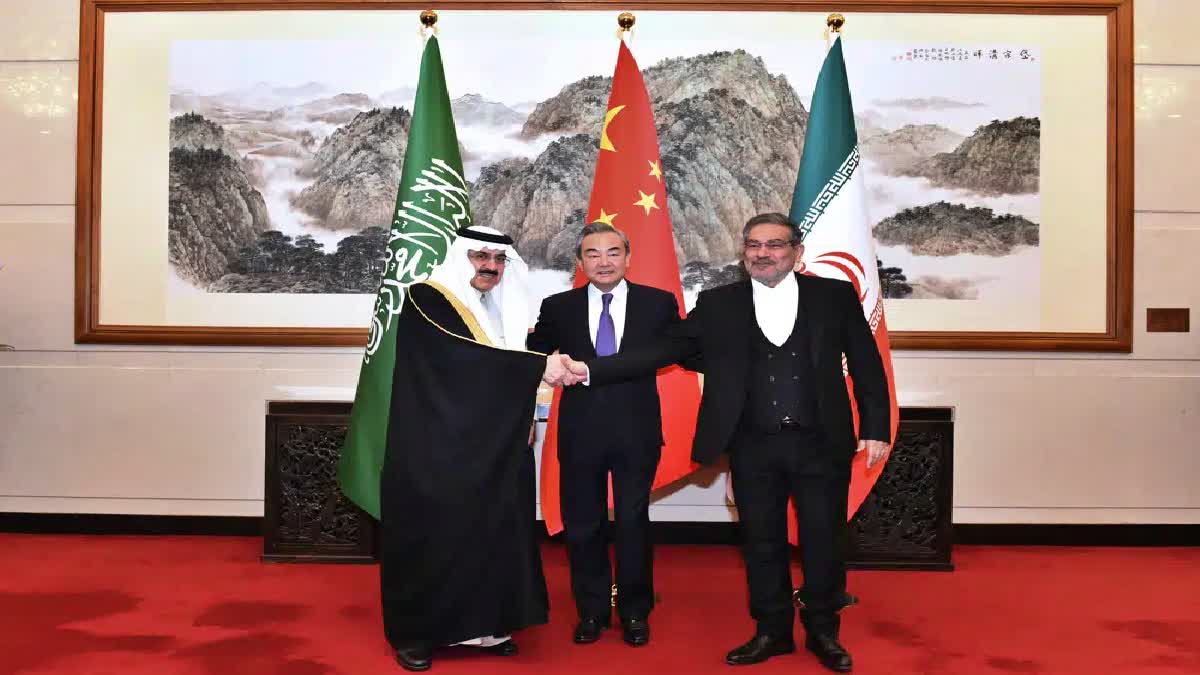The new axis that is emerging from West Asia will help contribute to the new world order that is in making. China, Russia, and, now shockingly, Saudi Arabia, and Iran forgetting their long-standing animosity to form a new equilibrium in which everyone looks out for the interests of the other. Iran, which used to fuel insurgency among Yemeni Houthis against the Saudi-backed government, now appears will end the conflict and bring some respite in the region. The conflicts in Lebanon and Syria also seem ready to put a stop.
The developments have not happened overnight. China has been building its profile in west Asia and attempting to water down the US influence in the region for a while. China’s attempts to consolidate its base in the region were further complimented when the Trump government showed a frosty response to an attack Houthi rebels made on a Saudi oil plant in 2019. Biden, further cemented what Trump initiated against Saudi and in fact, made Saudi bashing as one of its election campaign tools to make Saudi Arabia as a pariah in the region before the US masses. The Saudi government got emboldened after US forces had to leave Afghanistan in the dead of night, leaving the country to the mercy of the Taliban, apparently, after a deal what they call Doha Deal, which was undoubtedly a safe exit from the region for the US facilitated by the Taliban.
Biden had to change his position as a result of the conflict in Ukraine realising that the soaring oil prices will shake his government if solutions are not found. Almost a year ago from now, amid intense criticism, Biden planned a Saudi visit in an effort to persuade the Saudi government to increase oil production, which would help reduce oil prices. It was actually the soaring energy market that made US government come to seek help from West Asian nations. But China’s ally Russia had already made deals to block US efforts. Russia and Saudi had made a deal and agreed to maintain oil prices high by reducing oil production. Russia, being the point of convergence in the entire group, methodically worked on its plans with each member as they are tied to each other by a shared interest and they see the US as their common enemy. Iran equips Russian troops, fighting in Ukraine, with drones fitted with long-range missiles. Saudi keeps oil production low to maintain high prices and that goes in Russia’s interest. Significantly, it was Russia’s ally, China, which brokered a peace deal between two old enemy nations- Saudi Arabia and Iran- on a day when the Chinese parliament was in session and redesigned the political landscape of West Asia and the Middle East.
Iran is Israel's archenemy and has been aiding Palestinian insurgent groups against Israeli forces for a long time, and this agreement between the two nations will have a long-lasting effect on Arab-Israeli relations and will exacerbate the gap between them. Because Trump had mediated a deal between Arabs and Israel that was important in the context of the Palestine-Israel conflict, the UAE's praise of the Saudi-Iran pact came as a huge blow to Israel.
India, which has deep ties with Israel, is keenly monitoring the developments in the West Asia region that have been brokered by India's rival China, and the Indian foreign ministry has not expressed any signs of panic nor has raised an alarm. Although India has good relations with both Saudi Arabia and Iran, the foreign office maintained its neutrality. In fact, China, who had expressed interest in establishing a rail link, put the brakes on India's plans to develop the Chabahar-Zahedan train link.
Throughout the course of this entire relation building between Saudi Arabia and Iran, India has successfully managed to uphold its impartial stance. The only thing that is an eyesore for India is China's interference and facilitation in such deals brokered between nations that are friendly with India. By doing this, China will be able to simply establish its presence in the West Asian region and advance its expansionist policy.
India is one of the key beneficiaries of the rising oil prices as it purchases oil from Russia and sells it to the west and Europe at much higher prices, but China may attempt to sabotage India's interests. The key worry for India would be to reduce the likelihood of being financially targeted, particularly in light of the agreement between Saudi Arabia and Iran that was mediated by the communist country and serves the larger interests of Russia. Everything depends on how the situation develops for India because up till now it has been able to successfully manage the neutral approach whether it be a matter of balancing between allies and foes or voting in the United Nations. The US is already a pariah in West Asia after China mediated the deal between the two countries; as the situation unfolds, it will become clearer how India is placed in the context of being perceived as China’s adversary.



